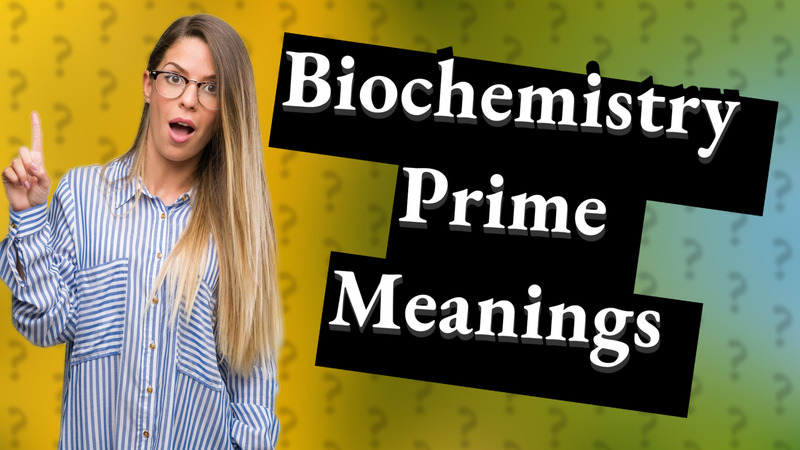
Discover the vital property of water's high specific heat capacity and its impact on climate moderation.

Learn about the 2 8 8 18 18 rule for electron arrangement around an atom's nucleus.

Learn the key properties of water: liquid form, tastelessness, and its role as a universal solvent.

Learn effective strategies to introduce atomic structure concepts using visual aids and models.

Discover the concept of true black color, light absence, and materials like Vantablack that represent this phenomenon.

Explore Schrödinger's Cat thought experiment and its implications in quantum mechanics.

Discover how uranium emits gamma rays and the implications for safety in handling radioactive materials.

Discover why ice floats on water due to its unique density properties.

Discover three typical applications of polypropylene, from packaging to automotive parts, and their significance.

Discover the key properties of water that make it vital for experiments in biology labs.

Discover 3 surprising facts about grapes and their health benefits in just under a minute.

Discover whether black onyx is naturally black or treated. Learn about its colors and characteristics.

Discover how air resistance influences the acceleration of objects in motion, including the concept of terminal velocity.

Learn about the 4 types of white spirit, their unique applications, and how to choose the right one for your needs.

Discover the differences between xylene and white spirit, including their uses and properties. Find out why they shouldn't be interchanged.

Discover the three main agents of metamorphism: heat, pressure, and chemical fluids, and their role in transforming rocks.

Discover who came first on Earth and learn about prokaryotes, the earliest life forms that paved the way for evolution.

Discover the properties of propylene oxide and its applications in manufacturing and safety precautions.

Discover the critical roles of sperm and egg in successful reproduction and genetic contribution.

Discover if Ukrainians share Greek DNA and explore their diverse genetic heritage influenced by historical interactions.

Explore the genetic inheritance of women, focusing on the X chromosome passed down from fathers.

Explore the intriguing history and technology behind magnets and their role in modern applications.

Discover how mothers pass mitochondrial DNA to daughters and its role in tracing maternal lineage.

Discover the truth about sibling DNA sharing. Learn how much genetic material you and your siblings have in common.

Discover how animals use glycogen, a stored form of glucose, for energy production during metabolic processes.

Learn the 3 essential rules governing atomic structure, including electrons, protons, and neutrons.

Learn why octets are stable in chemistry and how they relate to the octet rule and chemical reactions.

Discover if chemistry is your passion by exploring problem-solving and analytical skills. Find out what's needed to thrive in this field.

Explore the differences between Vitamin B5 (Pantothenic Acid) and Niacinamide (Vitamin B3) for optimal skincare and health.

Explore the fundamentals of fire movement, including how fires spread through conduction, convection, and wind.

Discover how chlorophyll makes grass green and its role in photosynthesis.

Discover how honey crystallizes and how to restore its liquid form without losing nutrients.

Discover why hydrogen is the easiest atom structure and its significance in chemistry.

Explore how wings provide lift, thrust, and maneuverability for birds during flight.

Learn how to identify male and female karyotypes using chromosome analysis. Understand the difference between 46,XY and 46,XX.

Learn why atomic clocks are the most precise timekeeping devices and their importance in scientific research and GPS technology.

Learn about the fascinating life cycle of blue flies, from egg to adult, in just a few days.

Explore China's discovery of the Changesite-(Y) mineral on the moon, a potential clean energy source rich in helium-3.

Explore what sets worms apart from bugs. Learn about their roles in ecosystems and importance in gardening.

Discover China's initiative to build an artificial sun through nuclear fusion, aiming for a sustainable energy future.

Explore why cold water is denser than hot water and its implications in various fields like HVAC and oceanography.

Discover if France relies entirely on nuclear power for electricity and learn about its energy diversification.

Uncover why atomic clocks are precise and safe without using radioactive material.

Discover why rechargeable batteries require longer charging times due to their chemical composition and safety features.

Learn about soluble and insoluble Non-Starch Polysaccharides and their benefits for digestion and bowel health.

Explore the world's longest protein name, Titin, and its complex naming conventions. Learn why it's impractical to use fully.

Discover the role of prime numbers in quantum physics and crystal analysis and their importance in physical models.

Discover how high pressure alters water properties, creating superheated states and unique ice forms for various applications.

Learn what 'prime' means in biochemistry and its significance in molecular structures like DNA.

Explore the potential weaponization of Uranium-233 compared to other nuclear materials.

Discover why mushrooms are classified as fungi and not vegetables, despite their culinary use.

Discover why mushrooms are classified as fungi, not plants, and learn about their unique biological characteristics.

Learn the complete process of extracting sugar from sugarcane easily and efficiently.

Explore why sound is invisible to us, learn about sound waves and how they differ from light.